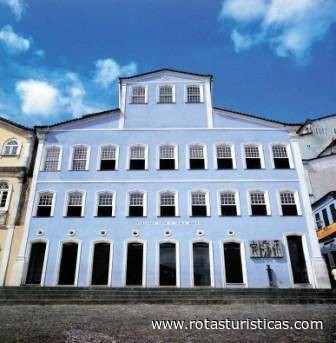Salvador, Bahia, Brazil
Suggest Place to Visit
8307
Track to location with GPS |
 |
The Casa de Jorge Amado Foundation occupies the mansion that faces Largo do Pelourinho, in Salvador, Bahia. It is a cultural institution with various activities and a research center, with documentation about Jorge Amado himself, Zélia Gattai and Bahian literature, open to visitors and highlighting courses, seminars, workshops, conference cycles, lectures, book launches and records, exhibitions, focusing on literary, artistic and human sciences themes.
Fundação Casa de Jorge Amado is a non-governmental and non-profit organization whose objective is to preserve, research and disseminate Jorge Amado's bibliographic and artistic collections, in addition to encouraging and supporting studies and research on the life of the writer and on art and Bahian literature. Casa de Jorge Amado's mission is also to create a permanent forum for debates on Bahian culture - especially on the struggle to overcome racial and socio-economic discrimination.
Its creation had the fundamental collaboration of Jorge Amado himself and his wife, Zélia Gattai, and the writer Myriam Fraga - until today at the head of the Foundation.
To keep the memory of the writer alive - who has had his books translated into 49 languages and published in 55 countries - since it was inaugurated, Casa de Jorge Amado has a permanent exhibition of documents, photographs, books, its popular appropriations, adaptations and related objects. Also on display are prizes received by Jorge and photos taken by Zélia Gattai, documenting the author's daily life.
In addition, to meet the needs of an editorial movement in Bahia, to stimulate literature and encourage the revelation of new writers, the Casa de Palavras Editorial Project, which already has 142 publications, was created. The Casa de Jorge Amado Foundation's objectives are also to support and encourage studies on Bahian literature, to debate the Brazilian reality and to stimulate literature.
The institution also conducts courses, seminars, workshops, conference cycles, lectures, book and album launches and exhibitions, individually and in collaboration with other institutions.
“A house of words, faithful to the destiny that they traced from the beginning, when it was just a dream. Jorge Amado's house - multiple, restless, changeable and mutant, which is renewed every day, hospitable and receptive ”.
The adoption, suggested by James Amado, of the phrase If it is of peace, can enter, as the motto of the House, sought to express the desire of those who elected this space as a place in which understanding between opposites was privileged, in the search for harmony and harmony. fraternity, against all forms of discrimination.
In 1982, Jorge Amado celebrated 70 years of age and 50 years of literature. At that time, some institutions, in Brazil and abroad, were pressing for the writer to donate his literary collection, so that it could be better preserved and studied. However, his wife, also a writer Zélia Gattai, was opposed to the idea, stating that the collection belonged to Bahians and, therefore, should remain in Bahia.
Two years later, Myriam Fraga brought up, again, the question of the need to found a house that would keep Jorge's collection. The Federal University of Bahia, whose rector was then Germano Tabacof, proposed to start the task of organizing the documents - in a work of recognition, cataloging and preparation of the collection -, which until this moment were kept in the writer's house, in the neighborhood of Rio Vermelho, in Salvador. Those responsible were a team of professors from the UFBA School of Library Science.
The collection was really important, although most of the documents, prior to 1950, had been destroyed, not only because of political persecution during the Estado Novo regime, but also due to its natural dispersion during the years of exile.
Many politicians and businessmen were involved with the creation of the House. At the time president, José Sarney promised full support for the project. The two mansions chosen to house the Foundation, listed as Historical Heritage, were donated by the Government of the State of Bahia and by BANEB. The construction company Odebrecht took charge of the electrical and hydraulic installations, as well as fire prevention equipment for greater security of the collection.
In 1986, the Casa de Jorge Amado Foundation was created, which would be inaugurated on March 7, 1987. The opening party lasted all day. It started at 11 am with the speech by President José Sarney. The abbot of the Monastery of São Bento, D. Timóteo Amoroso Anastácio, performed the Catholic blessing of the premises and the babalorixá Luís da Muriçoca proceeded to clean the House, with incense and sacred leaves. In the afternoon, the padê took place, a ceremony that opens the candomblé obligations, in which some of the most important Casas-de-santo in Bahia participated through their representatives.
At night, a great party brought together, in a memorable show, great artists: Zezé Motta, Grande Otelo, Batatinha, Riachão, Gereba and Bebel Gilberto, Afoxé Filhos de Gandhy, Caetano Veloso, Gilberto Gil, Dorival Caymmi, Edil Pacheco, Geraldo Azevedo , Moraes Moreira and Waltinho Queiroz. Bahia actress Nilda Spencer was responsible for leading the party, attended by more than 20,000 people. “(...) I watched from the window at the beginning of the party, I was unable to stay until the end, the heart has its limits”, Jorge Amado.
The Casa de Jorge Amado Foundation is located in houses number 49 and 51 in the Historic Center of Salvador. Jorge Amado lived in the mansion at 68, Rua Alfredo Brito, a few meters from the Foundation's headquarters. The setting for several episodes of Jorge Amado's novels, Pelourinho was already running the world with the stories of Dona Flor, Pedro Arcanjo, Tereza Batista, Quincas and a dozen other characters that, based on the writer's imagination, can still be confused with several popular types that roam its shaded townhouses.
"Exu is the guardian of the paths of the city of Salvador da Bahia, the most important orixá in the candomblé liturgy, the orixá of the movement, mistaken for many by the devil in syncretism with the Catholic religion, as he is malicious and teasing, he does not know how to be quiet, likes confusion and boredom. Posted at the crossroads of all paths, hidden in the half-light of dawn or dusk, in the morning bar, in the evening, in the dark of the night, Exu keeps his beloved city Woe to anyone who disembarks here with malevolent intentions, with a heart of hatred or envy, or towards here, touched by violence or bitterness: the people of this city are sweet and cordial and Exu locks their ways to the false and the wicked. "
At the request of Jorge Amado himself, Exu was chosen as the symbol and guardian of the Foundation, one of the most powerful orixás in the Candomblé liturgy. Lord of the crossroads, Exu opens doors, closes paths, protects his godchildren and guards the doors of the Foundation - planted there in solemn rite by Mother Stella de Oxóssi, one of the most respected ialorixás in Bahia -, represented by the iron sculpture of Tati Moreno, donated by writer James Amado.
“Only a small group, at the top of Pelourinho, watched the settlement ritual in silence. Mother Stella, in simple clothes, without the clothes that the saint-mothers usually wear in the ceremonies of the terreiros, but with the authority of guardian of the knowledge of the religion of their ancestors, placed, at the bottom of the small pit prepared in advance, the Axé, the force that emanates from the belief in the Orixá and that, resisting centuries of persecution, managed to survive and keep the black people of Bahia together ”2.
Once the symbol was chosen, Carybé, a great friend of Jorge Amado and founding member of the institution, tried to personify it through a design that, by the simplicity of the line and the strength of the representation, identified the Foundation, giving it personality and recognition of your propositions and actions.
The Research and Documentation Division holds approximately 250 thousand documents, distributed in three collections.
The main one, the Jorge Amado Fund, gathers the writer's personal documentation and records of the genesis, publication, translations, circulation and readings of the work. These are books by him in Brazilian and Portuguese editions, and translations in 44 languages; publications in journals; articles; lyrics and co-authored publications; work as a translator and organizer; personal documents; correspondences; originals; certificates; diplomas; decorations; trophies; medals and plaques received in Brazil and abroad. In addition to theses, studies and quotes about the author, biographies, adaptations of his work for cinema, theater and television, photographs, films, videotapes, discs, posters and others.
The Zélia Gattai Fund has a collection of works published by the writer, translations, critical reception and a valuable archive of photographs (estimated at 21,000 negatives) that document Jorge Amado's trajectory in the last sixty years. Part of this collection of photographs was published, in 1986, by the publisher Corrupio, under the title Reportagem Incompleta, in an out-of-print edition; in the book Jorge Amado Fotobiografia, by the Alumbramento editions; and by Exu magazine nº 28.
The third fund gathers documents about the Foundation itself, ranging from the first ideas and measures for its creation to the records of activities and promotions, throughout its 24 years of existence. Also included in this collection are paintings, sculptures and other works of art donated to the institution, the complete collection of Exu magazine and the books edited by the Casa de Palavras Collection.
Since the Casa de Jorge Amado Foundation is primarily intended for literary writing, it is all too evident that it was conceived as a radiating nucleus of actions aimed at literary production, honoring and promoting the professional activity of the writer.
In this way, the Foundation has conducted courses, workshops, seminars and lectures, in addition to guiding and increasing school visits, with monitoring by monitors, seeking to arouse the interest of students.
Through special projects, such as "With the Word the Writer", efforts have been made to bring together authors and the public, with an emphasis on promoting Bahian writers, provoking debate, criticism and the transmission of their personal experience.
Since the Casa de Jorge Amado Foundation is primarily intended for literary writing, it is all too evident that it was conceived as a radiating nucleus of actions aimed at literary production, honoring and promoting the professional activity of the writer.
In this way, the Foundation has conducted courses, workshops, seminars and lectures, in addition to guiding and increasing school visits, with monitoring by monitors, seeking to arouse the interest of students.
Through special projects, such as "With the Word the Writer", efforts have been made to bring together authors and the public, with an emphasis on promoting Bahian writers, provoking debate, criticism and the transmission of their personal experience.
Comments
We don´t have yet any comments about:
Casa de Jorge Amado Foundation
Casa de Jorge Amado Foundation
Be the first to leave a comment as it is very important to inform other people
Outros locais a visitar
Within a radius of 20 km from:Casa de Jorge Amado Foundation
City Museum |
| 0,0 Km |
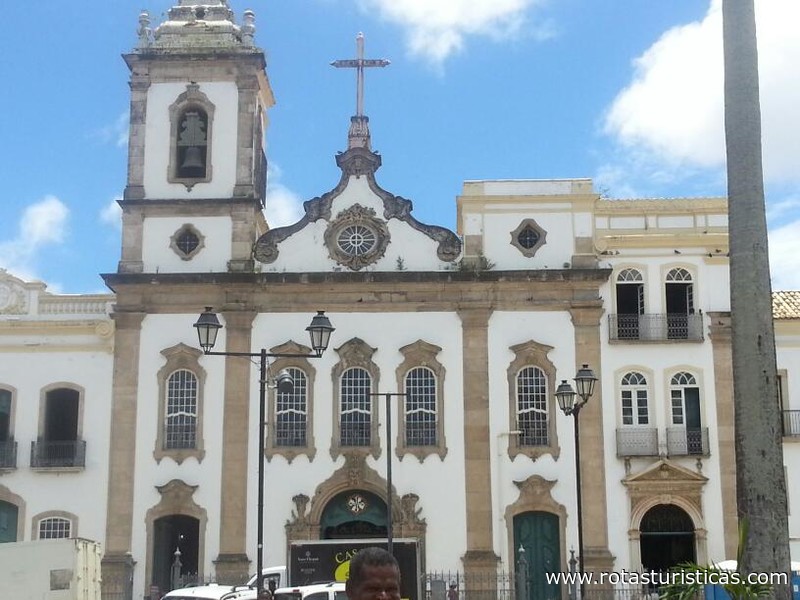 |
Museum of Bahian Gastronomy |
| 0,1 Km |
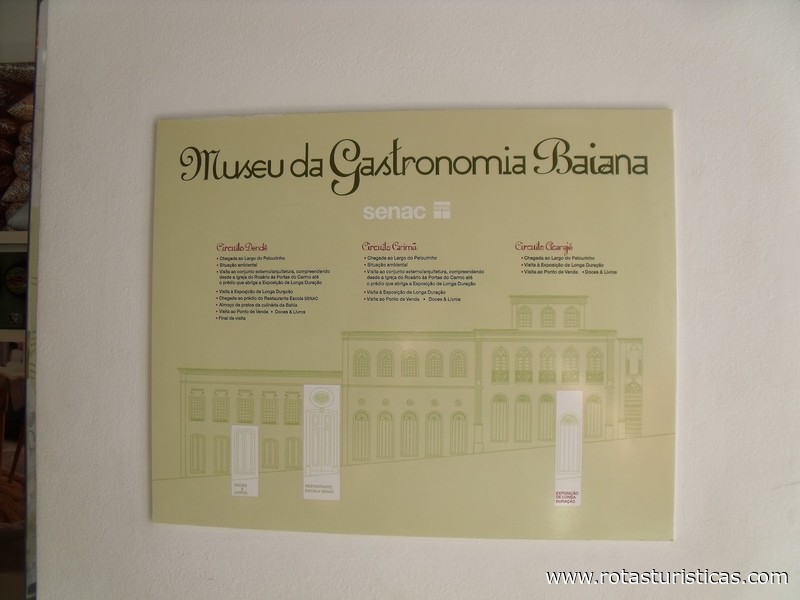 |
Museum of Brazilian Music |
| 0,3 Km |
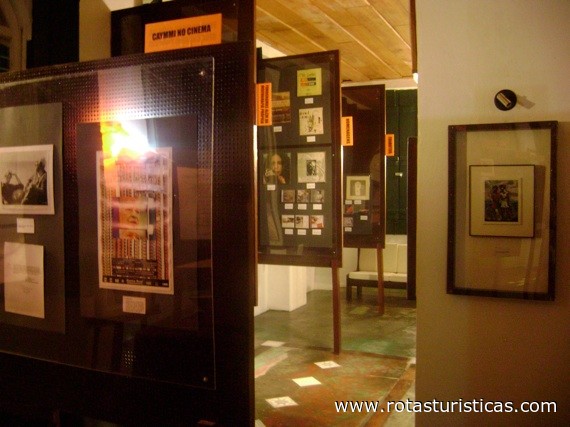 |
San Francisco Third Order Courtyard (Salvador da Bahia) |
| 0,3 Km |
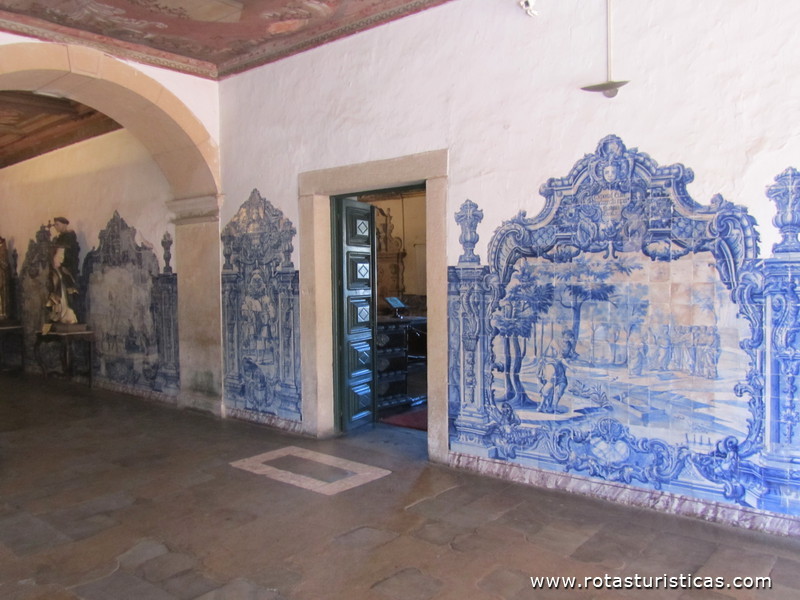 |
Hostel of the Convent of Carmo (Salvador) |
| 0,3 Km |
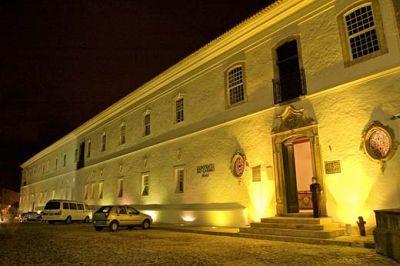 |
Santa Maria Fort - Porto da Barra (Salvador da Bahia) |
| 0,4 Km |
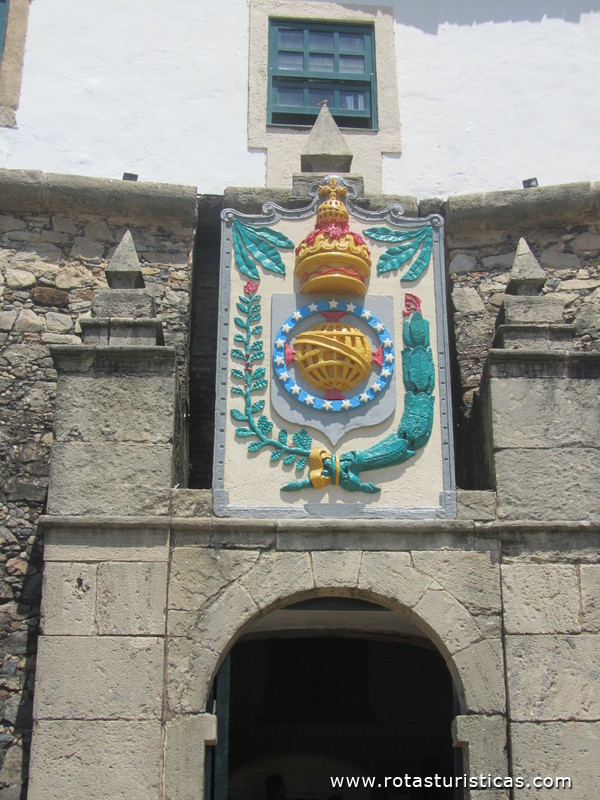 |
Church of the Conception of Prai (Salvador da Bahia) |
| 0,4 Km |
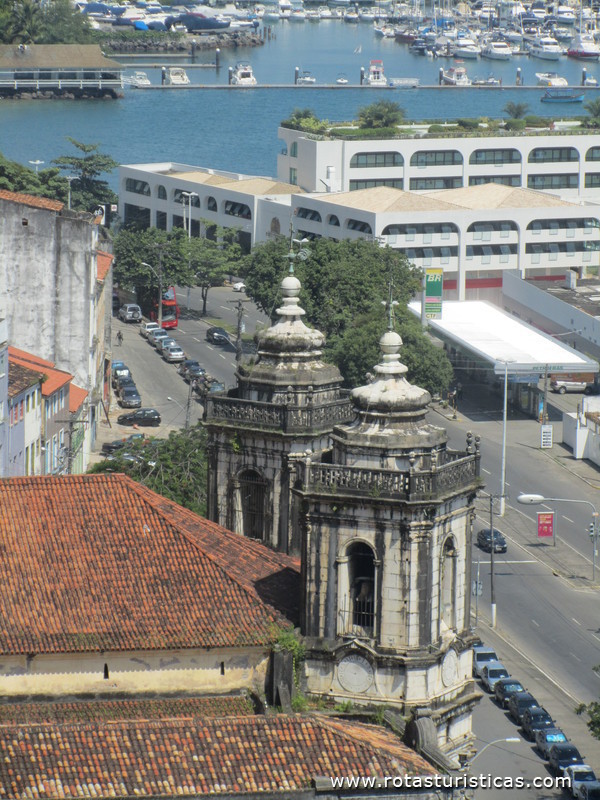 |
Fallen Cross Monument (Salvador da Bahia) |
| 0,4 Km |
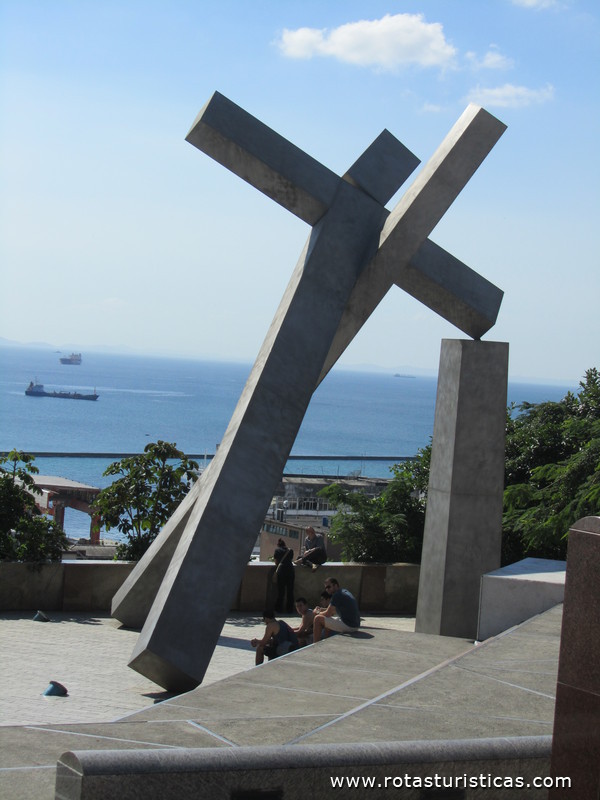 |
Museum of Mercy |
| 0,4 Km |
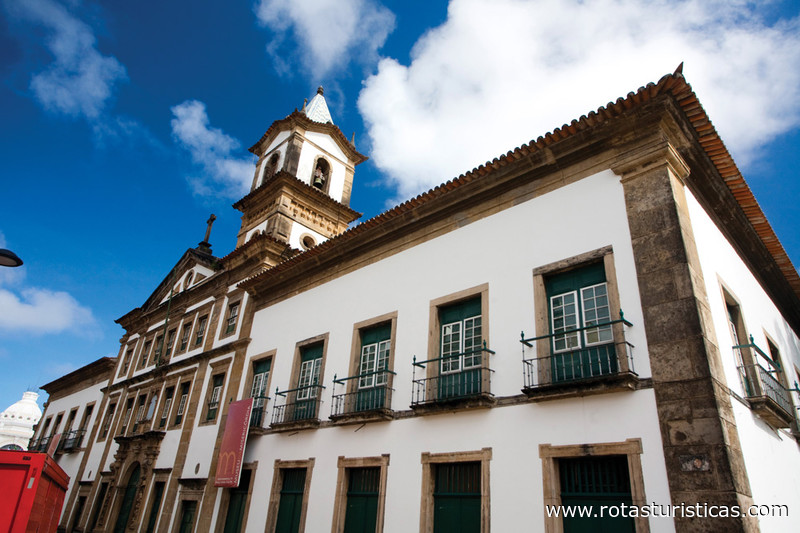 |
Salvador - Informação Geral |
| 0,5 Km |
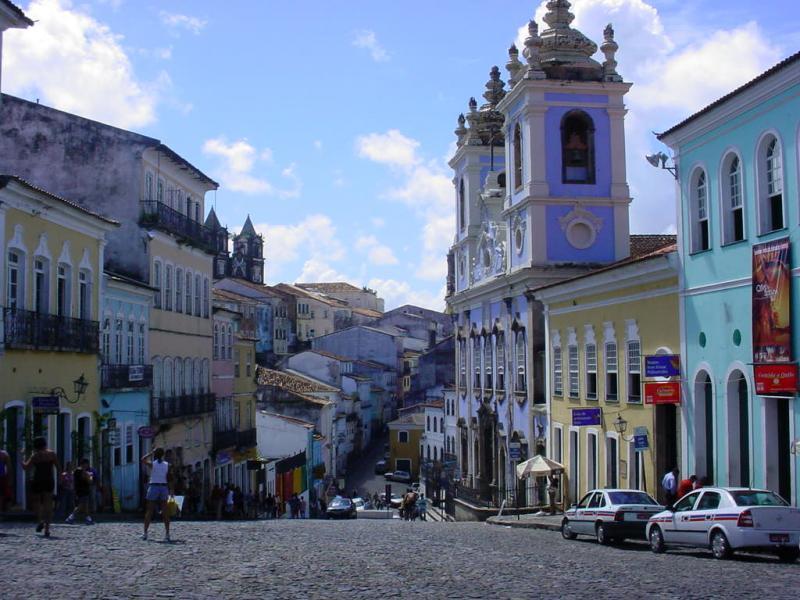 |
Palacio do Governo |
| 0,6 Km |
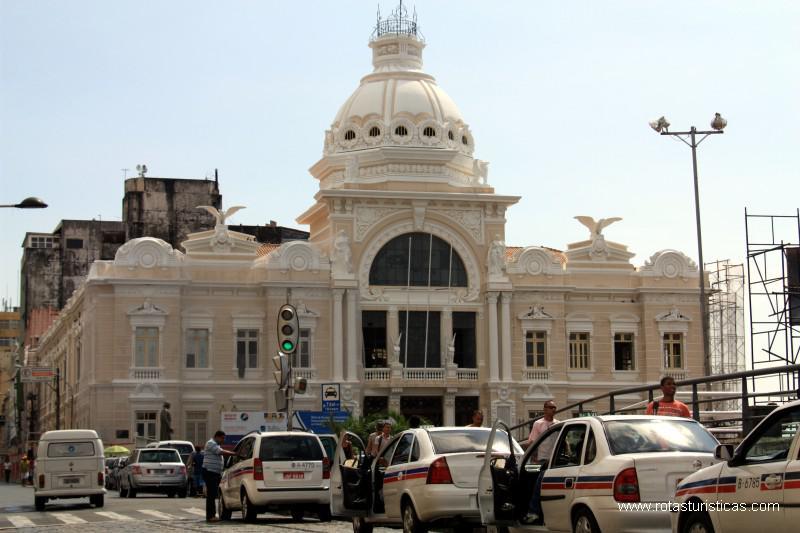 |
Rio Branco Palace |
| 0,6 Km |
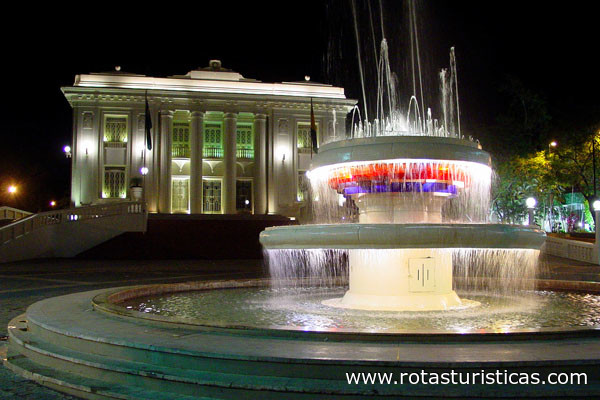 |
Udo Knoff Museum of Tiles and Ceramics |
| 0,6 Km |
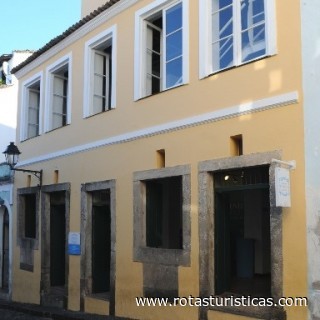 |
Salvador City |
| 0,8 Km |
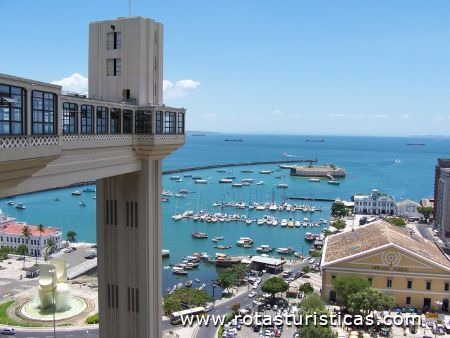 |
Tile Museum |
| 0,9 Km |
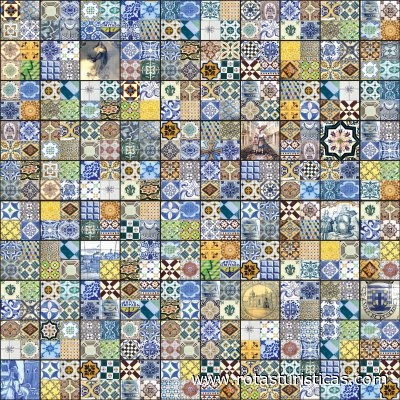 |
Museum of Sacred Art |
| 1,1 Km |
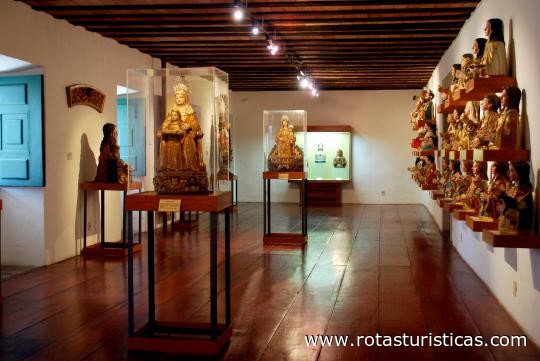 |
Bahia Geological Museum |
| 3,0 Km |
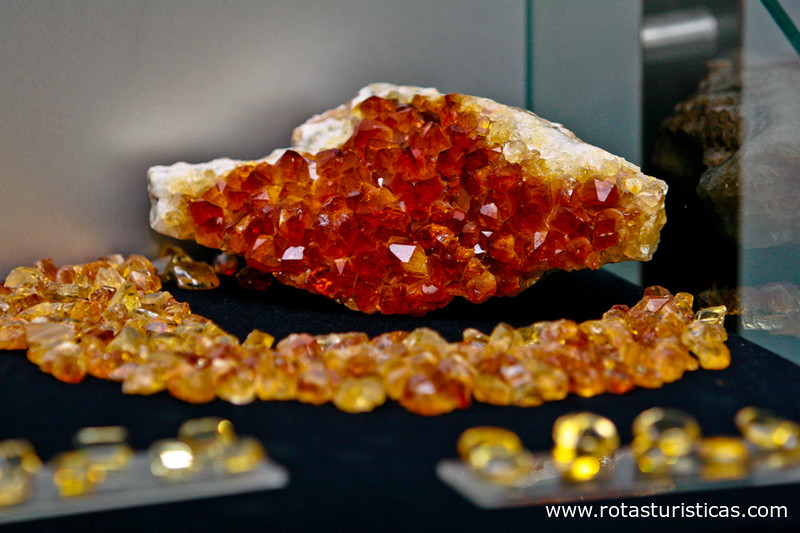 |
Bahia Science and Technology Museum |
| 8,4 Km |
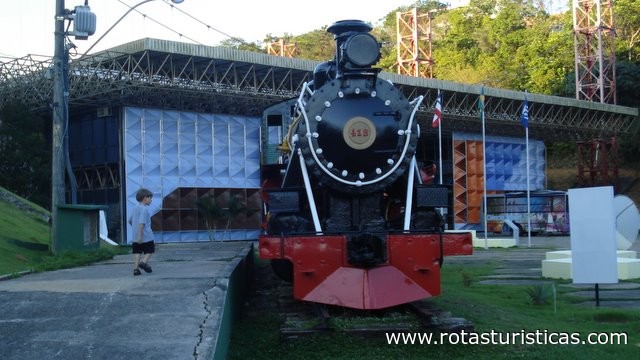 |
Hotel reservation near Casa de Jorge Amado Foundation within a radius of 20 km
Why to book with BOOK HOTEL ALGARVE
The best prices
Our partnerships with the world´s largest operators offer research on the best market prices.
More options
At Rotas Turisticos you can book the hotel, buy the air ticket, book the transfer from the airport to the hotel and vice versa, book the local excursions, rent the car, take travel insurance and consult the places to visit and where to go.
Holiday Tips & Destinations
Hundreds of holiday destinations with all the options that allow you to easily choose the destination that best suits your dream vacation.
BOOK HOTEL ALGARVE
Links


